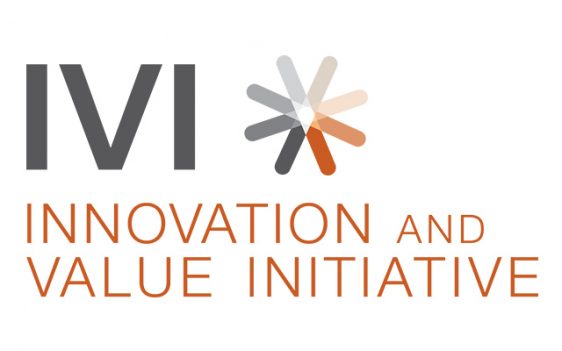Los Angeles, CA – November 15, 2018 – The Innovation and Value Initiative (IVI) – a nonprofit dedicated to advancing the science and improving the practice of value assessment in healthcare – today released qualitative research evaluating what factors most impact the value of treatment to metastatic non-small cell lung cancer patients.
According to the research, which was conducted in collaboration with LUNGevity, patients reported valuing treatments that would help increase overall or progression free survival, help stop or slow progression of their disease, as well as the degree to which treatment efficacy would allow them to maintain functional ability and their quality of life with minimal side effects.
This research helped inform the structure and content of IVI’s Open-Source Value Platform (OSVP) decision models for assessing the relative value of sequential treatments for epidermal growth factor receptor (EGFR) positive, non-squamous non-small cell lung cancer (NSCLC). In particular, insights from the qualitative research helped to identify important drivers of value to patients for inclusion in the Multi-Criteria Decision Analysis (MCDA), a customizable approach to comparing relative value that includes factors beyond costs and clinical benefits. IVI will release the initial version of the IVI-NSCLC modeling package this month and begin a three-month long public comment period.
According to the research findings, patients said they were likely to tolerate side effect risks for even modest gains in areas they valued. Quickly determining when it is best to switch treatment or stop a therapy was also important to these patients – given the poor long-term disease prognosis in NSCLC, patients felt they could not afford to waste any time on an ineffective treatment.
“While survival and efficacy remained the most important factors for patients, this study demonstrates that patients increasingly value quality of life factors, such as freedom from pain, ability to engage in daily activities without fatigue, and lack of financial stressors,” said Mark Linthicum, Director of Scientific Communications at IVI. “This study’s findings underscore the need to enhance all healthcare stakeholders’ understanding of the value determinants most meaningful to patients and ensure these factors are incorporated into patient-centered value assessment.”
Specifically, non-clinical treatment factors patients most valued include:
- Tolerance of side effects and availability of therapies to mitigate side effects.
- Modes of treatment administration that allow participants to maintain some daily living activities.
- Avoiding therapies that may be risky or ineffective since long-term prognosis is poor.
- Immunotherapies because of their known efficacy for certain genetic mutations, convenience due to mode of administration, and potentially lower risk of side effects.
- Avoiding conventional treatment, such as chemotherapy, because of its perceived toxicity and potential negative impact on quality of life.
- New therapies that potentially hold metastatic cancer at bay, treating it more as a chronic than acute disease.
“As health care decision makers weigh benefit, risk and cost of non-small cell lung cancer therapies, this research offers an examination into the clinical and non-clinical factors patients care about so the most appropriate therapy can be utilized for each patient’s particular circumstance,” said Jennifer Bright, executive director at IVI.
The qualitative research utilized mini focus groups and in-depth, structured telephone interviews with metastatic NSCLC patients that explored drivers of value, preferences in treatment, and other key contextual questions. Nineteen metastatic NSCLC patients who had received systemic therapy within the past five years participated in the research. Data were analyzed using thematic analysis to identify emergent themes across participants and determinants of value in treatment decision-making.
###
Media Contact:
Eric Hoffman
Schmidt Public Affairs
Telephone: (202) 285-0810
E-Mail: ehoffman@schmidtpa.com
Follow IVI on Twitter: @IVI_health
Follow IVI on Facebook: @innovationandvalueinitiative
Follow IVI on LinkedIn: Innovation and Value Initiative
About the Innovation and Value Initiative
The Innovation and Value Initiative (IVI) is a collaboration among thought leaders in academia, patient advocacy organizations, payers, life sciences companies, providers, delivery systems, and other organizations. It was created to raise the level of discussion regarding value in health care and find common ground in the approach to measuring and rewarding value. IVI’s Strategic Advisory Panel includes experienced leaders from across the health care industry. Their role is to provide advice and ensure the credibility and rigor in the research and policy products and to ensure all parties have a voice in IVI activities.


